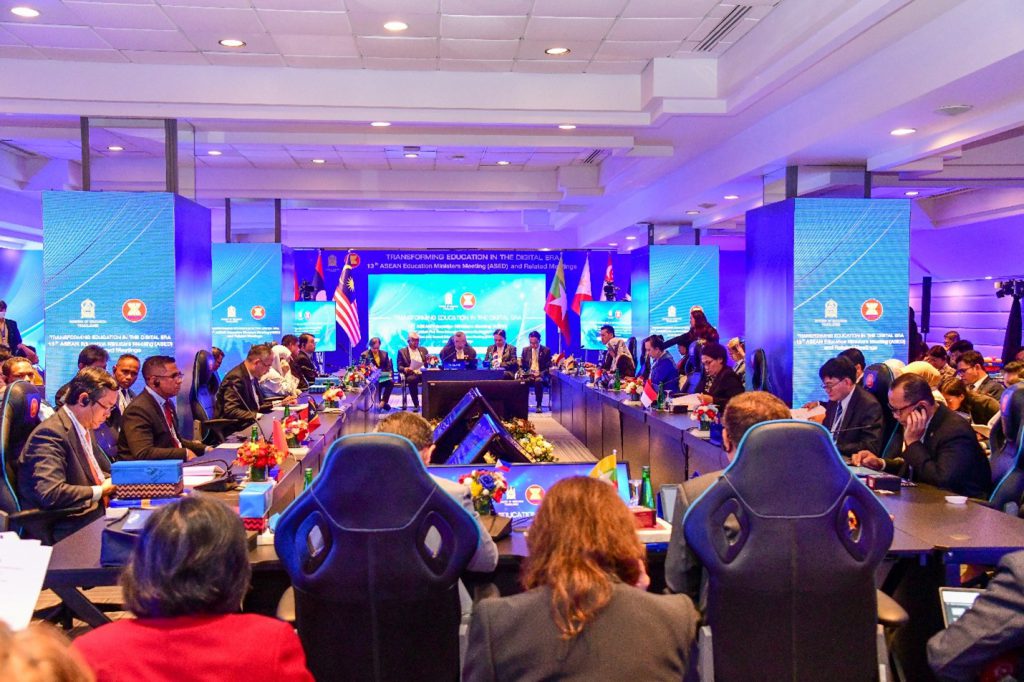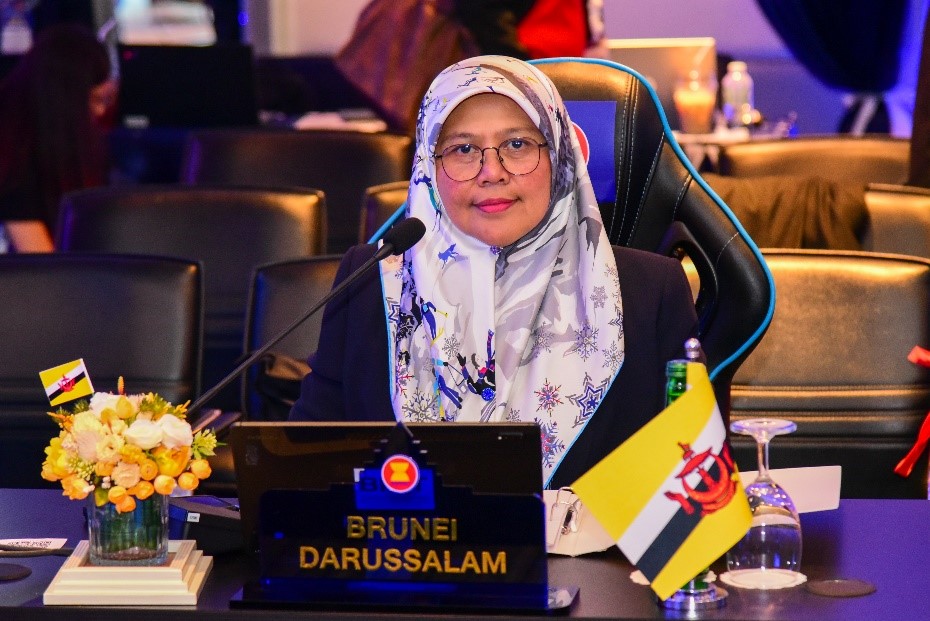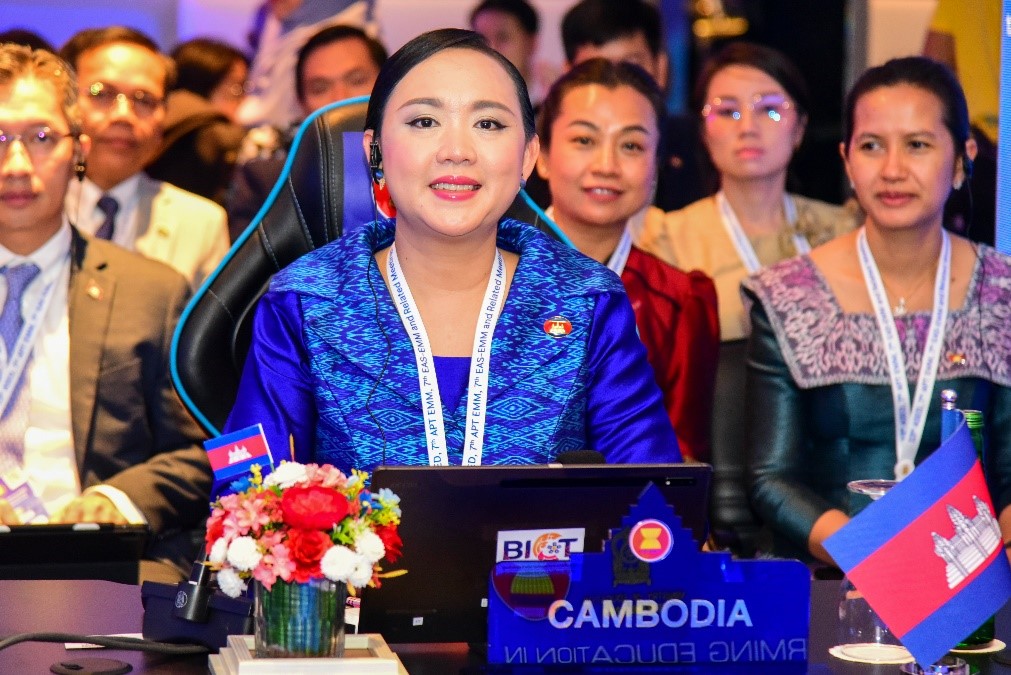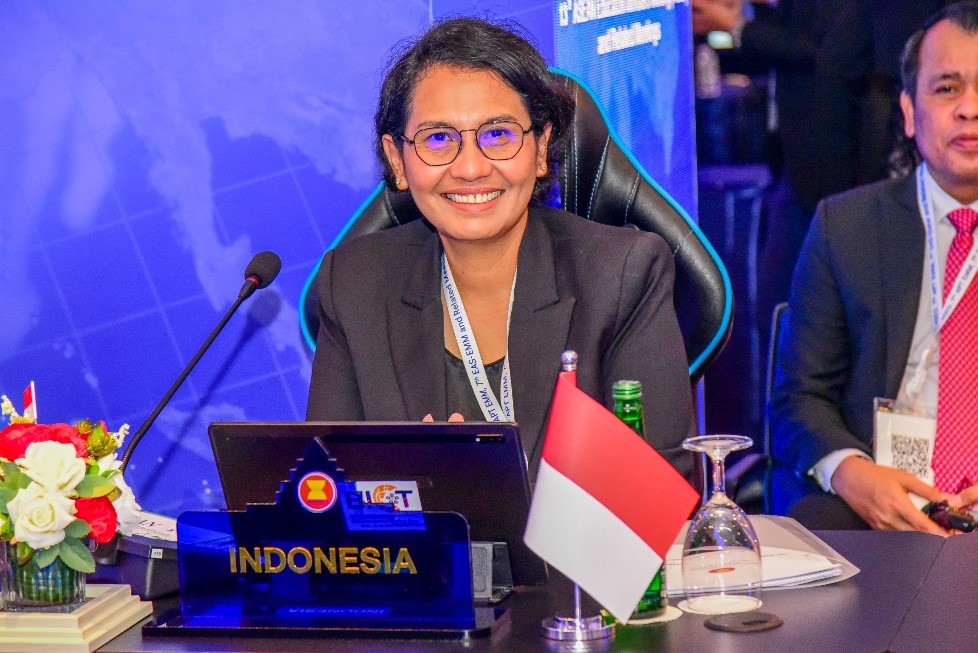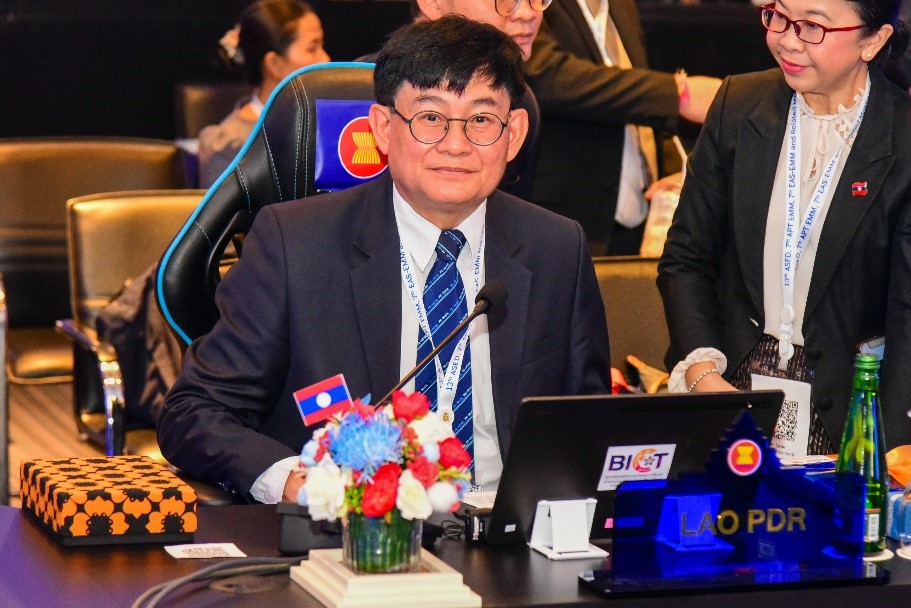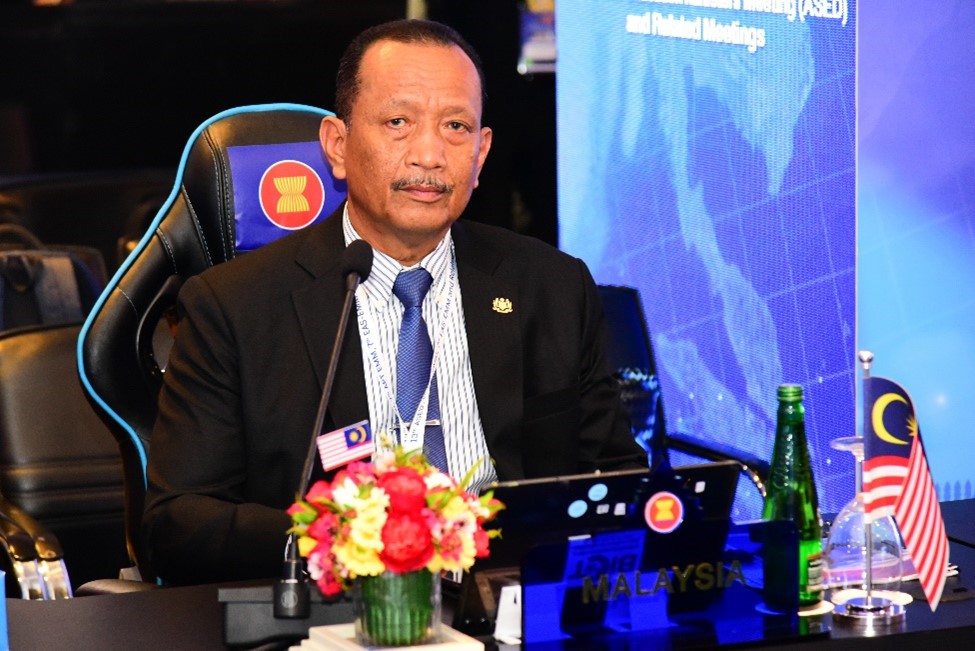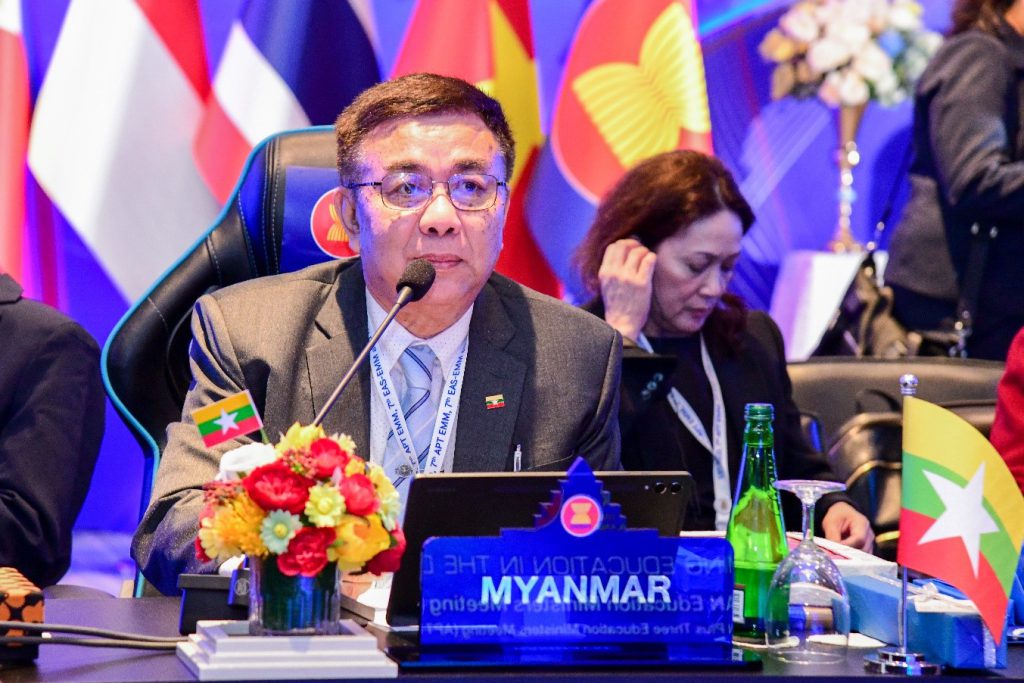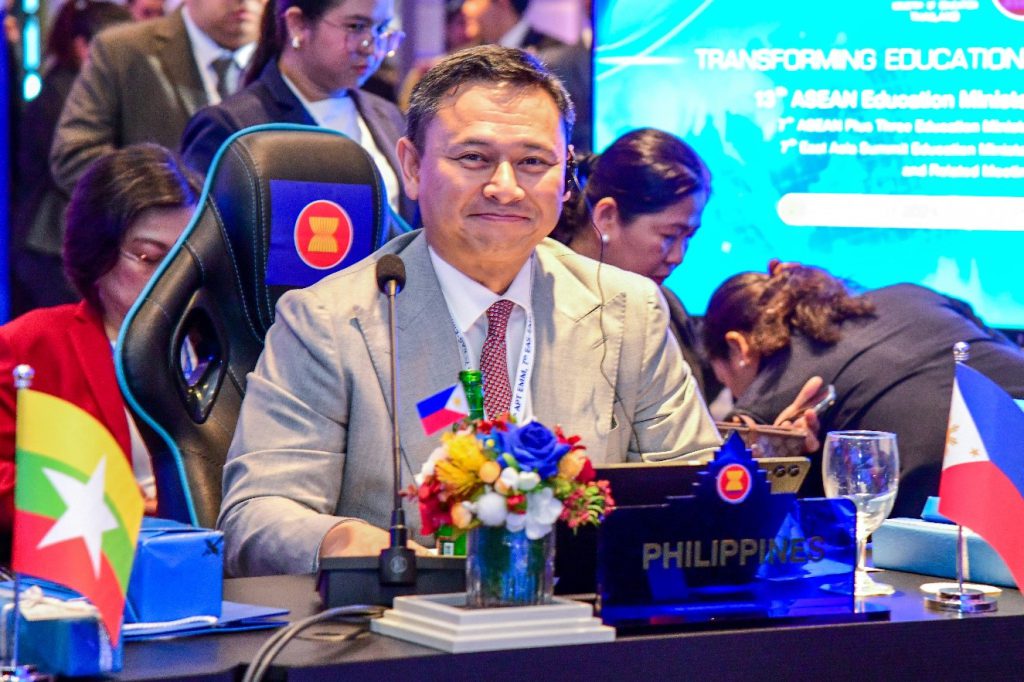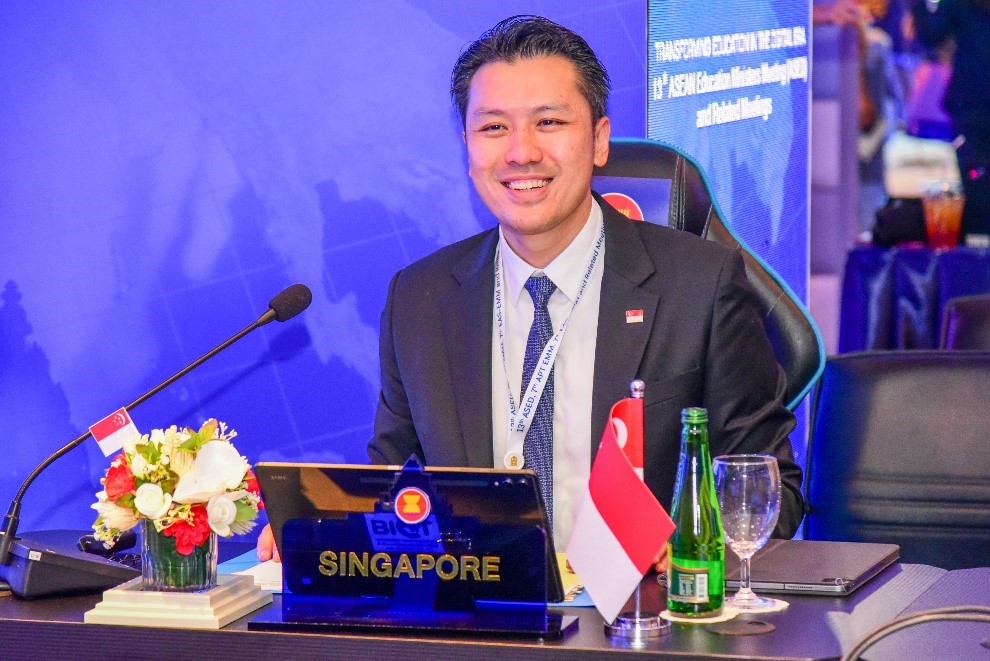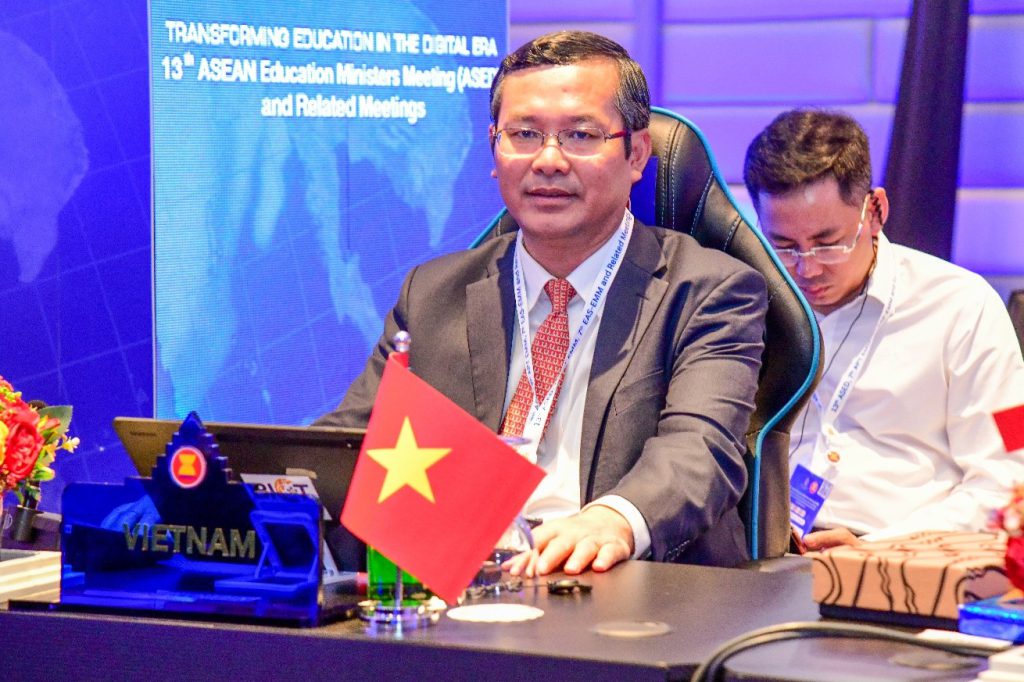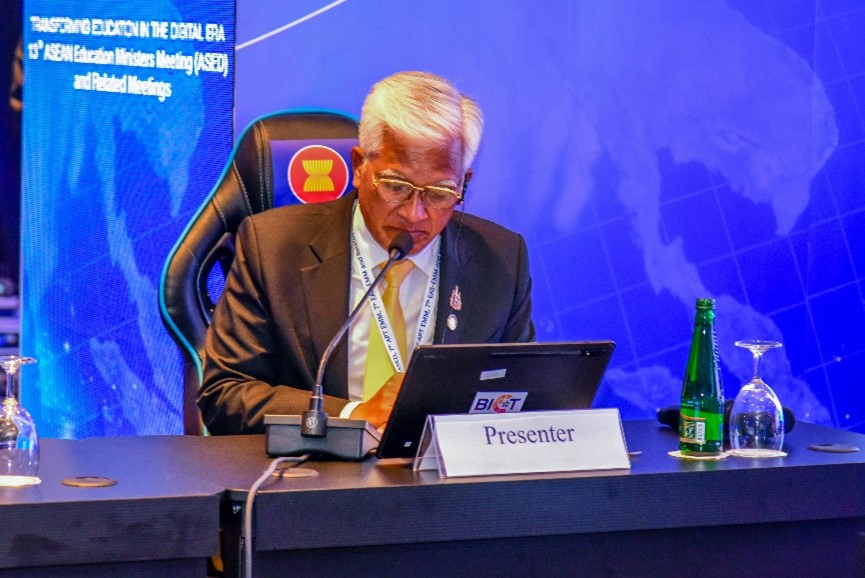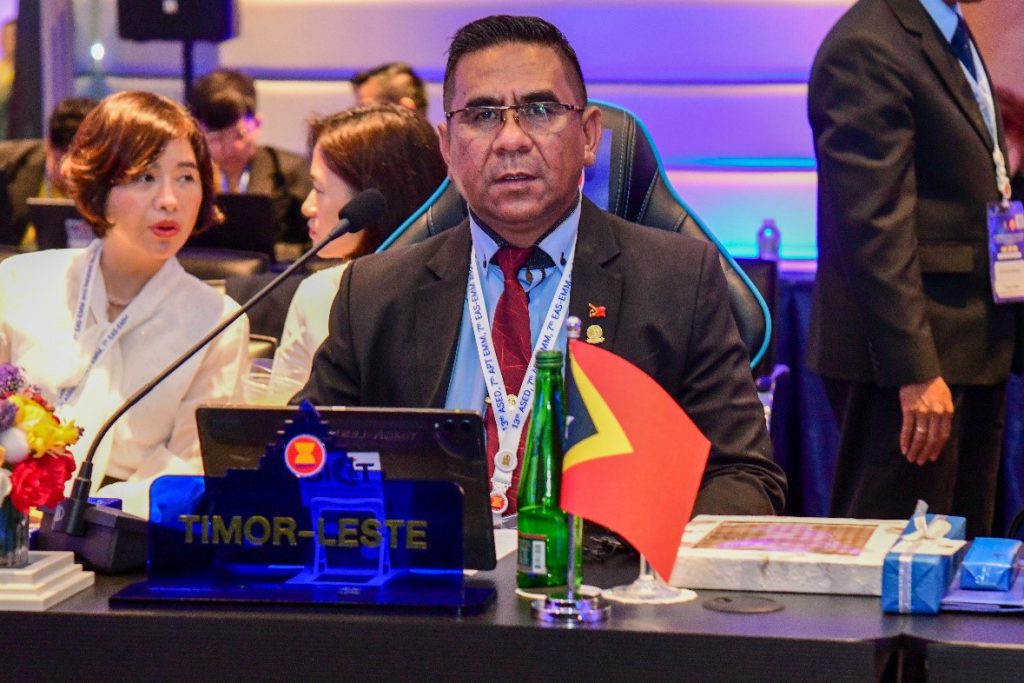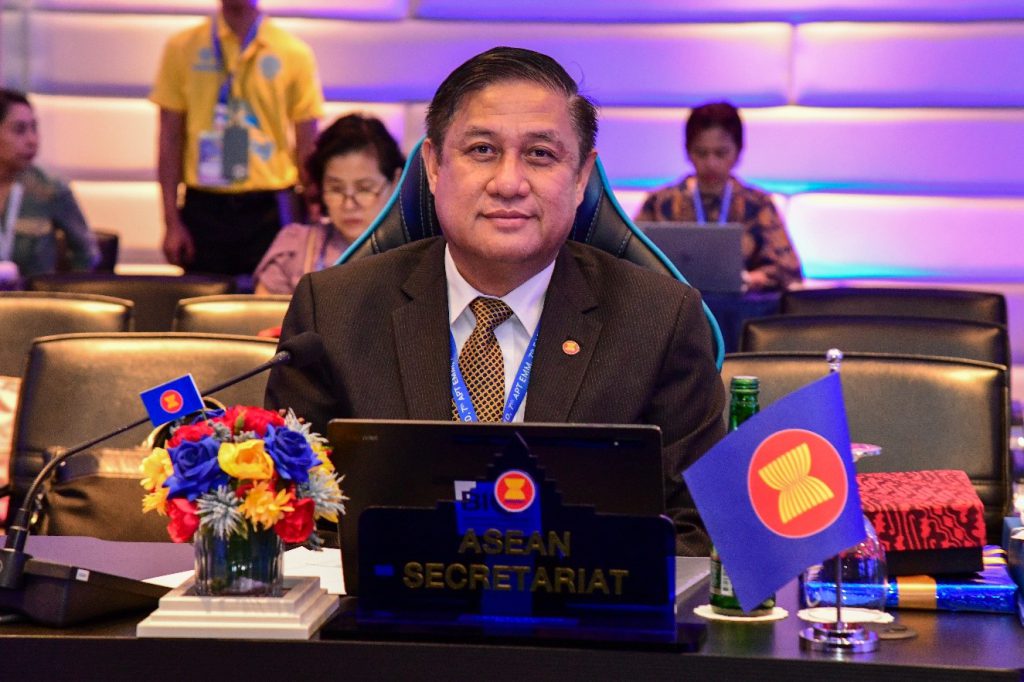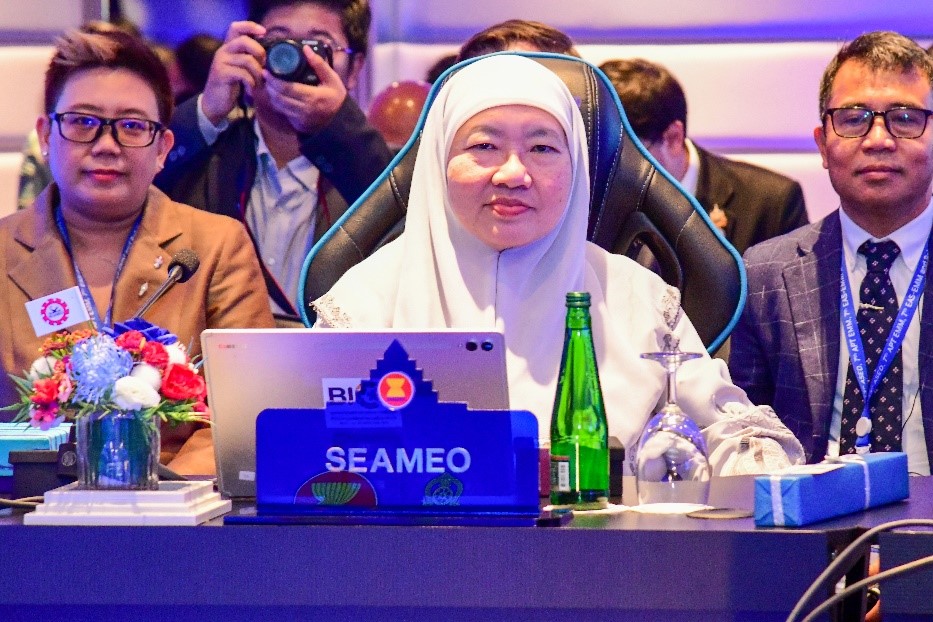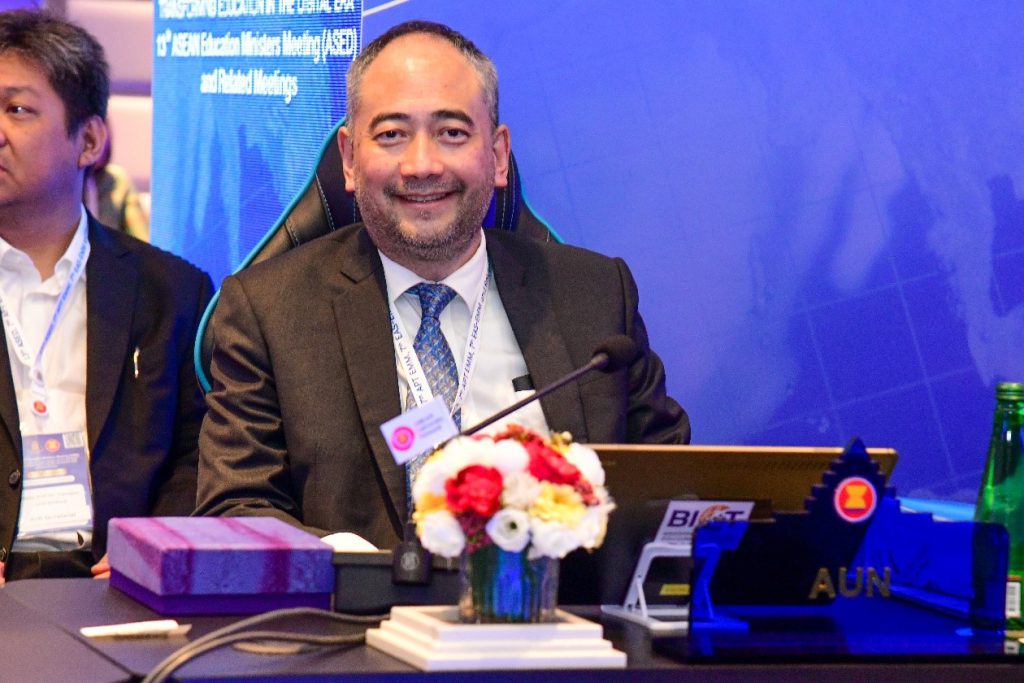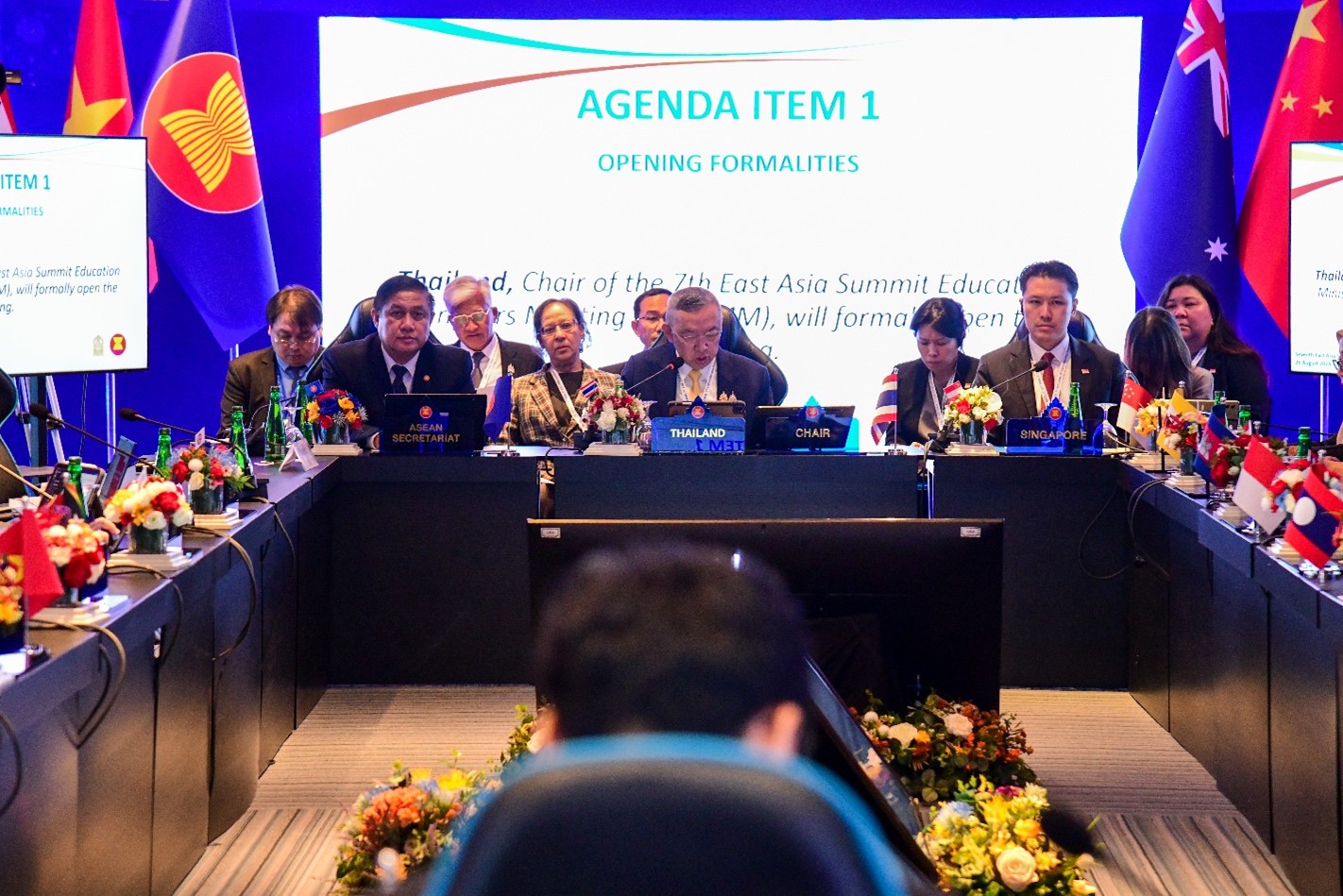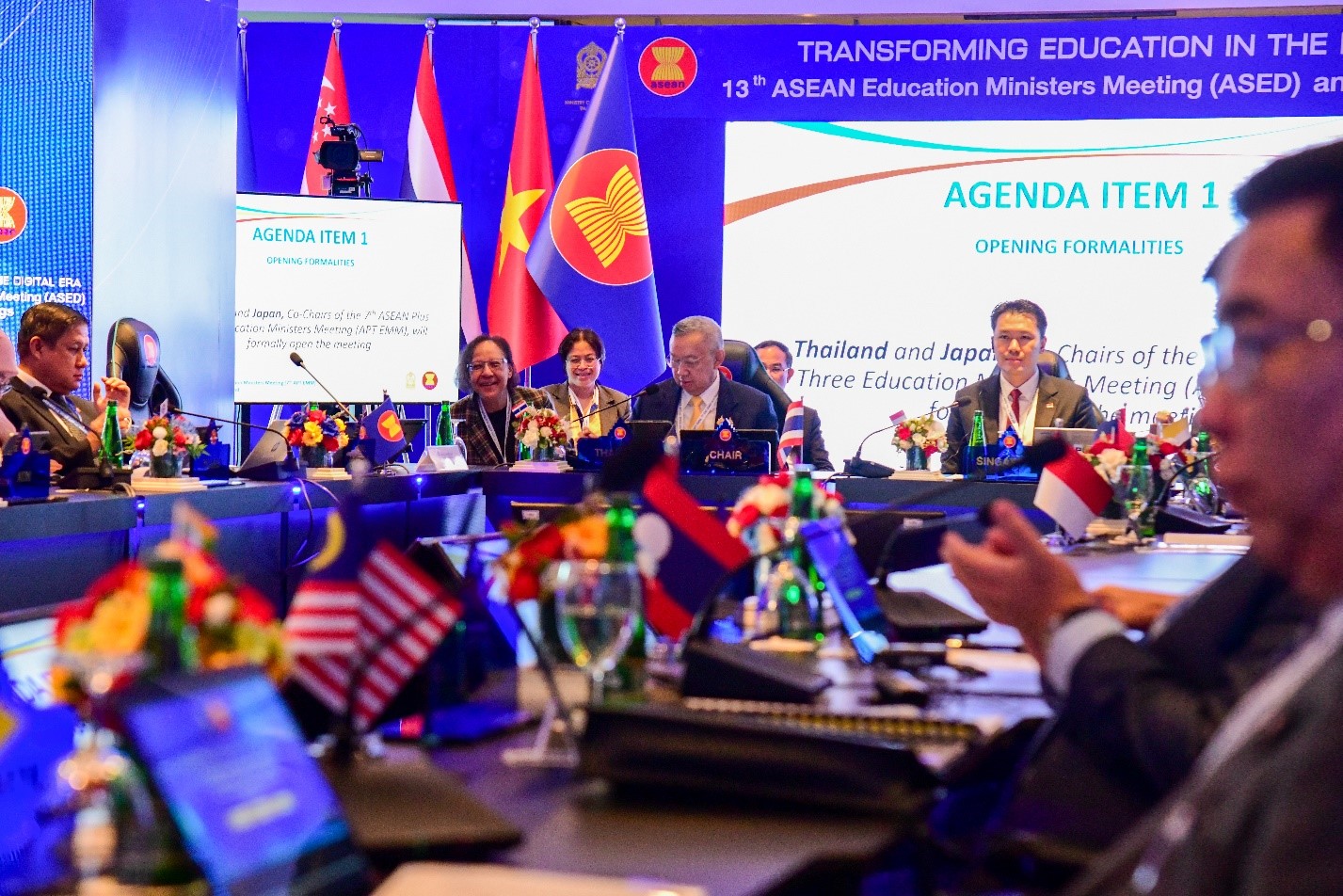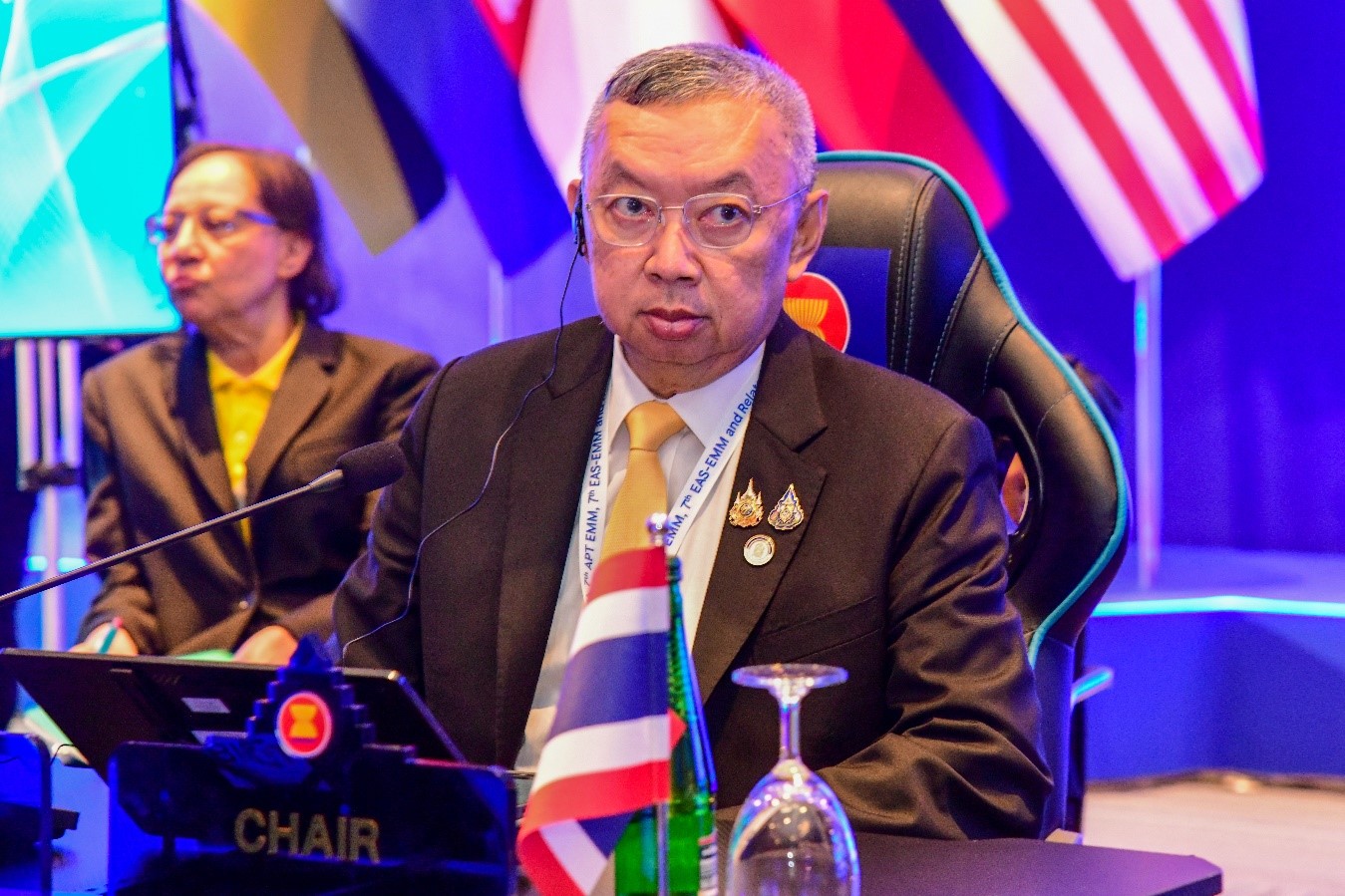
On August 25, 2024, Thailand had the honor of hosting the 13th ASEAN Education Ministers Meeting. This significant event gathered education ministers from all ASEAN member countries, including Brunei Darussalam, Cambodia, Indonesia, Lao PDR, Malaysia, Myanmar, the Philippines, Vietnam, Singapore, and Thailand. Additionally, Timor-Leste participated as an observer, and representatives from various ASEAN educational cooperation partners were also present. In total, approximately 50 participants were involved in this important meeting.
The opening ceremony of the 13th ASEAN Education Ministers Meeting began at 10:00 AM. H.E. Pol. Gen. Permpoon Chidchob, Thailand’s Minister of Education and Chairman of the meeting, underscored the vital importance of collaborative efforts in education management to navigate the challenges of the digital era. He highlighted how advancements in digital technology have transformed learning methods at all educational levels, providing greater flexibility and adaptability compared to traditional classroom settings.
The meeting provided an important opportunity to gather insights from ASEAN education ministers on transforming education in the digital era, aiming to ensure that education can adapt to the rapidly changing circumstances. However, digital transformation may lead to educational disparities, which is a significant issue that must be addressed to ensure equitable access to education for all.
Furthermore, developing students’ skills to align with the demands of the digital era is essential. This includes skills such as analytical thinking, problem-solving, and technology use. Additionally, education for sustainable development should be promoted among youth to raise awareness about environmental conservation, the responsible use of resources, and peaceful coexistence. This is crucial for ensuring the sustainability of people’s lifestyles in all aspects.
The meeting also received reports on the outcomes of the 18th and 19th ASEAN Senior Officials Meetings as follows:
Vietnam reported on the outcomes of the 18th ASEAN Senior Officials Meeting, which was held online in October 2023. The meeting highlighted progress in implementing the ASEAN Work Plan on Education 2021-2025, which is crucial for advancing education in the Southeast Asia region. Notable activities included the development of the “Reopen, Recover, and Resilience in Education: Guidelines for ASEAN Countries” manual. Additionally, a research report was presented, analysing learning loss in reading and mathematics in ASEAN primary schools, providing a clear picture of the issues and potential solutions.
The meeting also reviewed Indonesia’s activities as ASEAN Chair in 2023, which included key events such as the policy seminar on early childhood care and education in Southeast Asia held in Jakarta, Indonesia, the ASEAN higher education conference in Bandung, Indonesia, and a regional seminar on higher education development. Furthermore, Indonesia developed policies to support disadvantaged children and youth, which]h was held in Malaysia.
As the Chair of the 19th ASEAN Senior Officials’ Meeting on Education, Thailand reported significant progress in implementing the ASEAN Work Plan on Education for 2021-2025, with the current progress reaching 90%. A total of 114 key projects are underway. Example projects currently in progress include:
- ASEAN-TVET Conference and ASEAN Higher Education Conference (Lao PDR)
- Guidelines for Assessment and Monitoring of TVET Teacher Performance and Quality (Brunei Darussalam)
- Self-Assessment of Reopen, Recover, and Resilience in Education Guidelines for ASEAN Counties (Cambodia)
- Research on Saving Biodiversity Through the Inclusion of Environmental Education in the Curriculum of ASEAN High School and Vocational School: Survey, Validity and Reliability Test (Indonesia)
- Regional Seminar on Out-of-School Children and Youth (Malaysia)
- YUFL and MUFL Collaboration: Partnered with SEAMEO QITEP (Myanmar)
- Regional Skills Technical Working Group (Philippines)
- TVET Success Stories from ASEAN Plus Three Countries (Singapore)
- Asian International Mobility for Students Programs (AIMS); and Technical and Vocational Education Initiatives (Thailand)
- Advancing ASEAN Basic Education: Policy Trajectory for International Large-Scale Assessments in Southeast Asia (Vietnam)
Another important item on the agenda was the statement by ASEAN Education Ministers. H.E. Pol. Gen. Permpoon Chidchob, Thailand’s Minister of Education, emphasized the commitment to achieving the ASEAN Community Vision 2025, which focuses on sustainable development and improving quality of life. He discussed the “Thailand 4.0” policy, aimed at modernizing education by integrating digital skills, enhancing teacher development, and promoting cultural and environmental awareness. Additionally, the “Happy Learning” policy seeks to leverage technology to reduce burdens on teachers and students while supporting income generation and workforce readiness. Thailand also highlighted the importance of strengthening ASEAN collaboration through exchanges and scholarships to prepare the region’s education system for the challenges of the 21st century.
Thailand also provided an update to the Meeting on documents for notation at the ASEAN Summit, including a Joint SEAMEO-ASEAN Declaration on the Common Space in Southeast Asian Higher Education; and the Vientiane Statement on Equity, Access and Environment: Advancing Climate Resilience in Early Childhood Settings in ASEAN.
The meeting endorsed the Buriram Joint Statement of the 13th ASEAN Education Ministers Meeting, drafted by Thailand, which underscores the commitment to the ASEAN vision 2025 and the United Nations’ Sustainable Development Goals. The statement emphasizes the role of education in addressing global challenges and supports Thailand’s focus on “Transforming Education in the Digital Era” by integrating regional cooperation and revitalizing projects like student exchanges.
At the closing ceremony, the Minister emphasized the importance of making ASEAN a dynamic region that fosters growth across all dimensions—political, economic, and social. This includes promoting human resources development to equip individuals with knowledge, skills, and digital competencies essential for adapting to the rapid changes in the contemporary world.
_______________________________
Gallery Highlights : https://13ased.moe.go.th/gallery-august-25th/


